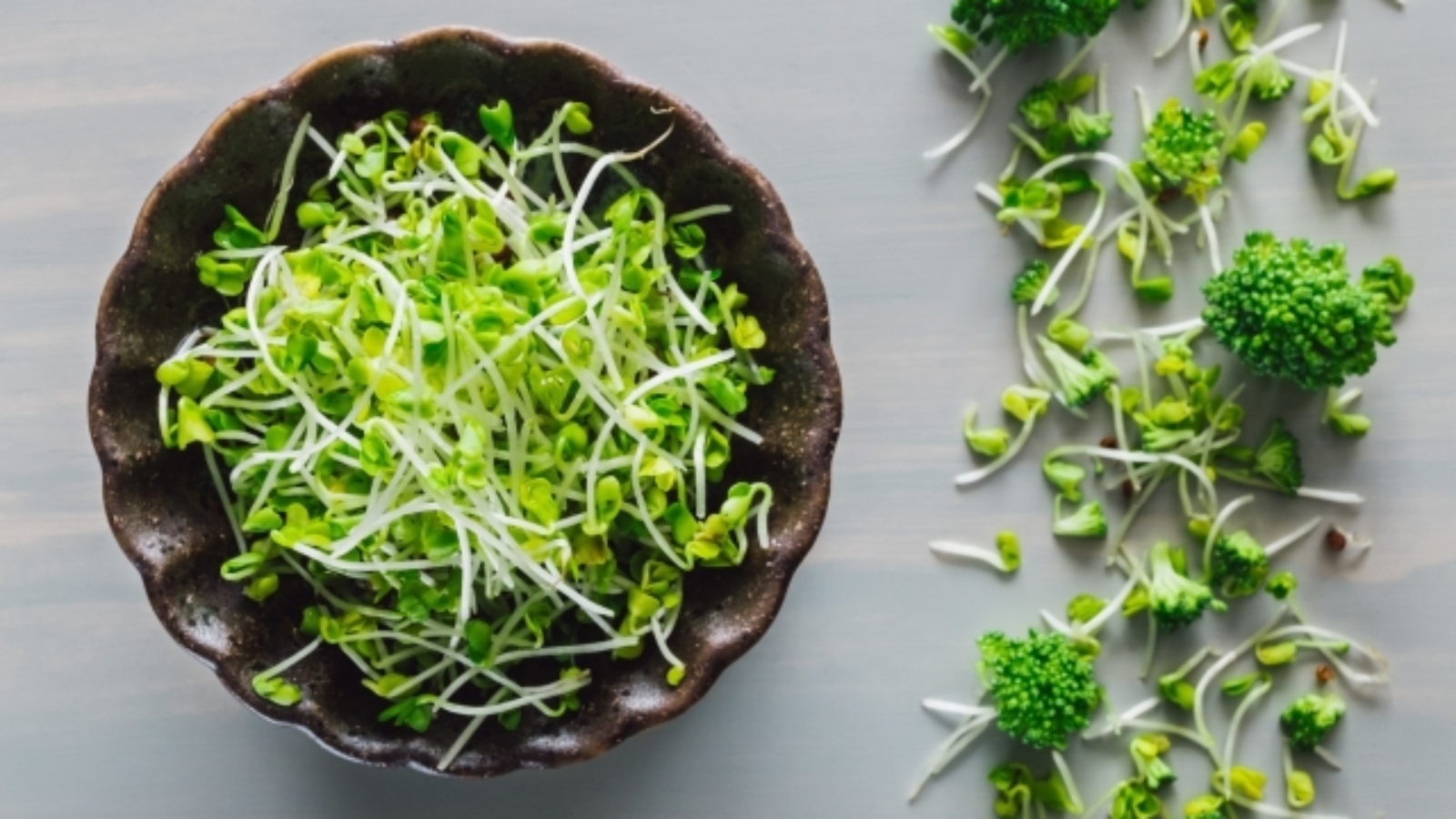By Lindsay Christensen
Nutritionist @ The Pratt Clinics
1/6/2019
If you’ve read Part 1 and Part 2 of this blog series, then you already know that broccoli sprouts offer an abundance of health benefits. In this final post, I’d like to share six more health benefits of broccoli sprouts and provide you with information about how to grow your own sprouts at home.
Alleviates asthma and lung inflammation
Sulforaphane may be a useful preventive agent and treatment modality for respiratory diseases. It relieves bronchoconstriction in asthma by upregulating Nrf2, a molecule that regulates the body’s production of antioxidants and protects against oxidative stress and inflammation, two factors that contribute to the pathogenesis of asthma. Sulforaphane also protects alveolar epithelial cells, the cells that compose our lungs, from cigarette smoke and air pollution-induced injury.
Protects skin from UV damage
Fascinating research indicates that sulforaphane acts like an internal “sunscreen!” It protects skin from UVA radiation, a type of radiation that extends deep into the dermis of the skin and can lead to premature skin aging, wrinkling, and suppression of the immune system. Sulforaphane induces these skin-protective effects by upregulating Nrf2, which as I previously mentioned, is a potent regulator of antioxidant pathways in the body.
Anti-cancer activity
Perhaps one of the most exciting applications of broccoli sprouts and sulforaphane is in the prevention and treatment of cancer. Sulforaphane modulates biochemical signaling pathways that induce apoptosis (programmed death) of cancer cells and inhibits metastasis and angiogenesis, the spread of cancer cells and the development of new blood vessels for facilitating cancer growth, respectively. It has anti-cancer activities against cervical, breast, bladder, renal cell carcinoma, lung, colon, and prostate cancer. Sulforaphane also potentiates the effects of the chemotherapy agents cisplatin and doxorubicin while simultaneously reducing their toxicity. This means sulforaphane may be used in conjunction with conventional cancer treatments.
Improves heart health
Sulforaphane promotes a healthy heart and circulatory system! It reduces blood pressure, inhibits platelet aggregation in blood vessels, improves endothelial function, and protects against atherosclerosis. It also lowers low-density lipoprotein (LDL) cholesterol, the form of cholesterol that is associated with an increased risk of cardiovascular disease when elevated.
Combats obesity
Chronic inflammation is an underlying cause of obesity; conversely, correcting inflammation can facilitate weight loss and normalize the metabolic disturbances associated with obesity, including insulin resistance and non-alcoholic fatty liver disease. A recent study found that glucoraphanin, the precursor to sulforaphane, mitigates obesity through several mechanisms: It increases mitochondrial biogenesis in fat tissue, thereby increasing metabolic function; improves glucose tolerance and insulin sensitivity; and decreases levels of a pro-inflammatory bacterium (Desulfovibrionaceae) associated with metabolic dysfunction.
Promotes bone health
Osteoporosis is increasingly being recognized as an inflammatory disease influenced by epigenetic factors such as diet and lifestyle choices. Research indicates that sulforaphane epigenetically modifies bone homeostasis and may thus be a useful intervention for preventing and treating osteoporosis. In animal studies, sulforaphane stimulates the activity of osteoblasts, the bone-building cells of the body, and decreases the activity of osteoclasts, the bone-degrading cells in our bodies, by activating the Nrf2 anti-inflammatory pathway. These changes result in higher bone volume, a feature inversely associated with osteoporosis.
How to grow your own broccoli sprouts
The health benefits of broccoli sprouts appear to hinge on the regular consumption of them; in other words, broccoli sprouts are not a “quick fix” treatment but rather something you should incorporate into your daily life. While there are several broccoli sprout/sulforaphane supplements on the market, growing your own broccoli sprouts at home is far more economical and can also be quite fun! There are just a few supplies you’ll need to get started growing your own sprouts:
• Ball glass jars (quart size)
• Sprouting lids (these jar lids have a mesh top, rather than solid metal, that allows the sprouts to breathe)
• Sprouting stands (these will enable you to invert the jars as the sprouts are growing so water can drain out)
• Organic broccoli seeds
• Filtered water
You can find these supplies at https://sproutpeople.org/.
Instructions:
• Add two tablespoons of broccoli seeds, such as Food to Live Organic Broccoli Seeds, to a wide-mouthed glass quart jar. Cover with a few inches of filtered water and cap with the sprouting lid. Store in a warm, dark place overnight.
• 8 hours later, drain off the water and rinse with fresh water. Drain the fresh water.
• Place the sprouting jar upside down at a 45-degree angle on a sprouting jar stand. Place in sunlight.
• Rinse and drain the sprouts every 8 hours for approximately 5 days, or until the leaves are dark green.
• Once the sprouts are dark green, they are ready to eat! I recommend tossing them into salads and wraps. You can store the sprouts in a mason jar with a standard lid in the fridge.
The exact dosage of broccoli sprouts needed to obtain health benefits is not definitive. However, I did a little math based on the results of several studies (I’ll spare you the details!) and have determined that you likely need to eat around 100 g per day of broccoli sprouts per day to experience therapeutic benefits. To ensure that you are getting the right amount of broccoli sprouts, I suggest buying a small food scale for measuring the sprouts.
Eating broccoli sprouts is a safe, effective, nontoxic, low-cost way to boost your health and reduce your risk of many health conditions. I hope this article has convinced you to give broccoli sprouts a try! If you have ever tried broccoli sprouts before or are considering trying them, let me know in the comments below. I’d love to hear your thoughts!

